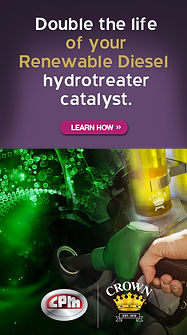- Blue Communications
Shipowner decarbonization survey identifies ‘collaboration crisis’

A survey of shipowners conducted by design and engineering consultancy Houlder Ltd. has highlighted that reliance on ad hoc collaboration between shipowners, and between technology companies and owners, is currently a major barrier to the decarbonization of shipping. The research—based upon owner feedback from across the container, tanker, bulk, cruise and ferry sectors—uncovers that while the potential impact of more in-depth interaction is significant in achieving carbon-reduction commitments, this is not currently being delivered in a way that owners need.
Every senior industry player interviewed confirmed that there is a willingness to collaborate and that it is critical to achieving rapid, fundamental change. However, collaboration is less evident in practice, as owners focus on achieving emissions reductions while safeguarding competitive advantage. The research unearthed two core areas for improvement: collaboration between owners and clean-technology providers, as well as collaboration between owners themselves.
Owners identified a lack of good quality and relevant operating data as a key barrier to the uptake of clean technology. There is also a perceived shortage of independent corroboration for the claims made by some technology vendors. None of the participants accused technology providers of suggesting deliberately misleading results but reflected that the data in a brochure will inevitably relate to another ship. So the results (and the unintended consequences) of any technology intervention need to be recognized as a retrospective, and sometimes fundamental, design change.
Large shipowners, in particular, are doing a great deal to move the industry forward by creating clear demand for future green fuels, by setting up infrastructure to trial new technologies, and by sharing some of their findings. However, according to respondents, that only highlights the challenge for the smaller owners and medium-sized owners—where typically the scale and investment required for R&D and trialing was unattainable. To play their part, these smaller and medium shipowners need to draw in partners in order to access the knowledge, scale and resources to enable them to make changes.
Effective collaboration needs convenors to safeguard participants and break down barriers. Convenors can act as a central black box, bringing sensitive information together to paint the full picture while protecting the confidentiality of the data owners. They can also help shipowners share the cost of trialing a new technology while giving them all access to the benefits.
“Collaboration has become a decarbonization buzzword, much heralded as central to shipping’s energy transition, and critical to meeting the International Maritime Organization’s emissions-reduction targets,” said Sean McLaughlin, strategy consultant at Houlder. “This research highlights that, while the heart is willing, the head remains focused on safeguarding competitive advantage. This creates a fundamental barrier that has to be addressed if shipping is to achieve its decarbonization goals. Collaboration is more than just shipowners sharing technical data on a new technology. It encompasses all stakeholders and often supply chains as well. What is clear is that we cannot expect collaboration to “just happen”—there has to be more proactive convenors. Flag states, national chambers and the international chamber, industry coalitions and independent consultants all have a key convening role to play if significant barriers are to be overcome. This should form a core discussion point at the Marine Environment Protection Committee (MEPC) 79 meeting next week.”
The Houlder Navigator survey is the first in a series of projects aimed at identifying and addressing key decarbonization challenges and supporting the energy transition. C-suite executives from both large and small shipping companies across the container, tanker, bulk, cruise and ferry sectors were interviewed and the anonymized output was collated into a whitepaper, titled, “Clean Technology and the decarbonisation challenge – a Houlder navigator whitepaper.” The whitepaper includes owners’ perspectives and direct quotes on decarbonization goals, choosing vessel efficiency (clean) technology, financial incentives and disincentives, evaluating alternative fuels, and making collaboration work.
Download the full whitepaper here.




















-adjusted-to-spec.jpg)



